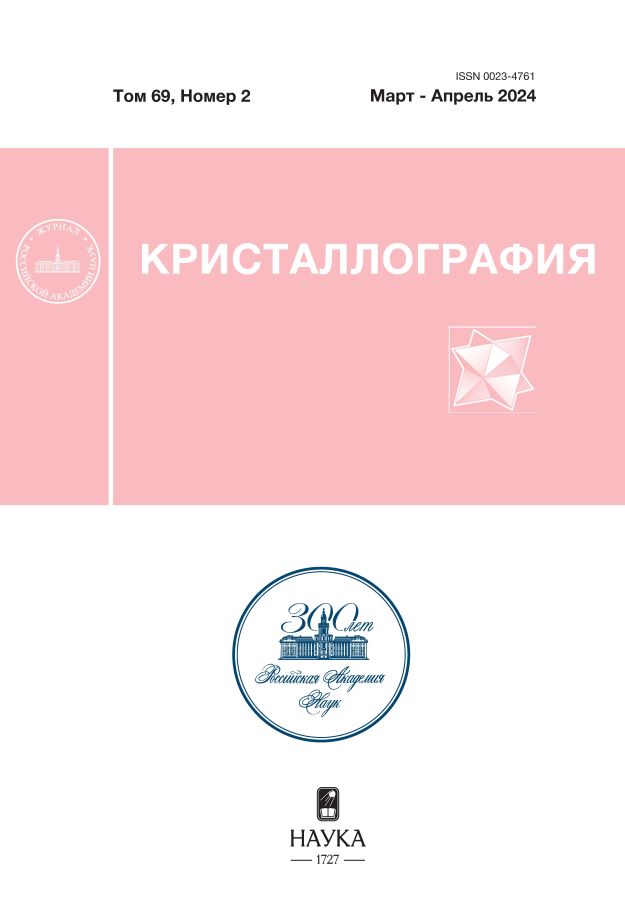Laboratory X-ray microphotography: a method of inner three-dimensional structure reconstruction of different nature objects
- Authors: Zolotov D.A.1, Buzmakov A.V.1, Dyachkova I.G.1, Krivonosov Y.S.1, Dudchik Y.I.2, Asadchikov V.E.1
-
Affiliations:
- Shubnikov Institute of Crystallography of Kurchatov Complex of Crystallography and Photonics of NRC “Kurchatov Institute”
- A. N. Sevchenko Institute of Applied Physical Problems of Belarusian State University
- Issue: Vol 69, No 2 (2024)
- Pages: 363-372
- Section: ПРИБОРЫ, АППАРАТУРА
- URL: https://cardiosomatics.ru/0023-4761/article/view/673217
- DOI: https://doi.org/10.31857/S0023476124020207
- EDN: https://elibrary.ru/YRXOJK
- ID: 673217
Cite item
Abstract
A brief retrospective of the development of laboratory X-ray microtomography at the A. V. Shubnikov Institute of Crystallography of the Russian Academy of Sciences (IC RAS) is presented. The main methods and approaches that have increased the informativeness of microtomographic measurements are outlined, such as the use of monochromatic radiation, the application of phase-contrast method, and the method of diffraction tomography (topo-tomography). The designs of the instruments created and operating at IC RAS are described, and some experimental results obtained with them are presented.
Full Text
About the authors
D. A. Zolotov
Shubnikov Institute of Crystallography of Kurchatov Complex of Crystallography and Photonics of NRC “Kurchatov Institute”
Author for correspondence.
Email: zolotovden@yandex.ru
Russian Federation, Moscow
A. V. Buzmakov
Shubnikov Institute of Crystallography of Kurchatov Complex of Crystallography and Photonics of NRC “Kurchatov Institute”
Email: zolotovden@yandex.ru
Russian Federation, Moscow
I. G. Dyachkova
Shubnikov Institute of Crystallography of Kurchatov Complex of Crystallography and Photonics of NRC “Kurchatov Institute”
Email: zolotovden@yandex.ru
Russian Federation, Moscow
Yu. S. Krivonosov
Shubnikov Institute of Crystallography of Kurchatov Complex of Crystallography and Photonics of NRC “Kurchatov Institute”
Email: zolotovden@yandex.ru
Russian Federation, Moscow
Yu. I. Dudchik
A. N. Sevchenko Institute of Applied Physical Problems of Belarusian State University
Email: zolotovden@yandex.ru
Belarus, Minsk
V. E. Asadchikov
Shubnikov Institute of Crystallography of Kurchatov Complex of Crystallography and Photonics of NRC “Kurchatov Institute”
Email: zolotovden@yandex.ru
Russian Federation, Moscow
References
- Асадчиков В.Е., Бузмаков А.В., Золотов Д.А. и др. // Кристаллография. 2010. Т. 55. № 1. С. 167.
- Бузмаков А.В., Асадчиков В.Е., Золотов Д.А. и др. // Кристаллография. 2018. Т. 63. № 6. C. 1007. https://doi.org/10.1134/S0023476118060073
- Кривоносов Ю.С., Бузмаков А.В., Григорьев М.Ю. и др. // Кристаллография. 2023. Т. 68. № 1. С. 160. https://doi.org/10.31857/S0023476123010149
- Кривоносов Ю.С., Бузмаков А.В., Асадчиков В.Е., Федорова А.А. // Кристаллография. 2023. Т. 68. № 2. С. 189. https://doi.org/10.31857/S0023476123020108
- Van Aarle W., Palenstijn W.J., De Beenhouwer J. et al. // Ultramicroscopy. 2015. V. 157. P. 35. https://doi.org/10.1016/j.ultramic.2015.05.002
- Junemann O., Ivanova A.G., Bukreeva I. et al. // Cell Tissue Res. 2023. V. 393. P. 537. https://doi.org/10.1007/s00441-023-03800-7
- Асадчиков В.Е., Бузмаков А.В., Волошин А.Э. и др. // Экспериментальная и клиническая гастроэнтерология. 2018. № 7. С. 118.
- Кривоносов Ю.С., Асадчиков В.Е., Бузмаков А.В. и др. // Кристаллография. 2019. Т. 64. № 6. С. 912. https://doi.org/10.1134/S0023476119060110
- Ерофеев В.Н., Никитенко В.И., Половинкина В.И. и др. // Кристаллография. 1971. Т. 16. № 1. С. 190.
- Золотов Д.А., Асадчиков В.Е., Бузмаков А.В. и др. // Автометрия. 2019. Т. 55. № 2. С. 28. https://doi.org/10.15372/AUT20190203
- Asadchikov V., Buzmakov A., Chukhovskii F. et al. // J. Appl. Cryst. 2018. V. 51. № 6. P. 1616. https://doi.org/10.1107/S160057671801419X
- Shiryaev A.A., Zolotov D.A., Suprun O.M. et al. // CrystEngComm. 2018. V. 20. P. 7700. https://doi.org/10.1039/C8CE01499J
- Анисимов Н.П., Золотов Д.А., Бузмаков А.В. и др. // Кристаллография. 2023. Т. 68. № 4. С. 507. https://doi.org/10.31857/S0023476123600192
- López-Muñoz F., Boya J., Marín F., Calvo J.L. // J. Pineal Res. 1996. V. 20. № 3. P. 115. https://doi.org/10.1111/j.1600-079x.1996.tb00247.x
Supplementary files


















